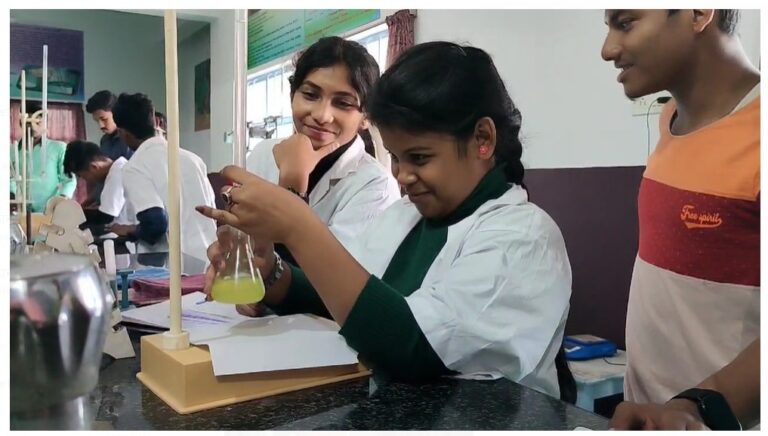
Delving into the Realm of Applied Chemistry: Applied chemistry is a dynamic and multifaceted discipline that bridges the gap between fundamental chemistry and practical applications. It encompasses a wide spectrum of endeavors, from developing new materials and pharmaceuticals to optimizing industrial processes and addressing environmental challenges.
The Role of Applied Chemistry
Applied chemistry plays a pivotal role in modern society, contributing to advancements in various sectors:
- Energy: Applied chemists are involved in the development of sustainable energy sources, such as solar cells and fuel cells.
- Materials: Applied chemistry drives the creation of novel materials with enhanced properties, such as lightweight composites, smart fabrics, and biomimetic materials.
- Pharmaceuticals: Applied chemists play a crucial role in drug discovery and development, synthesizing and evaluating potential therapeutic agents.
- Environmental Science: Applied chemistry contributes to pollution control technologies, water purification methods, and remediation strategies for contaminated sites.
- Forensics: Applied chemistry is employed in forensic investigations, providing analytical techniques for crime scene analysis and evidence identification.
The Applied Chemistry Lab: A Crucible for Innovation
The applied chemistry lab serves as a hub for hands-on learning and experimentation, where theoretical concepts are translated into practical applications. Students engage in a variety of activities, including:
- Synthesis and Characterization: Synthesizing new compounds and characterizing their properties using analytical techniques such as spectroscopy, chromatography, and microscopy.
- Chemical Analysis: Analyzing samples of various matrices, such as food, water, and environmental samples, to determine their composition and identify potential contaminants.
- Solution Chemistry: Investigating the behavior of solutes in solutions, including factors affecting solubility, reactivity, and equilibria.
- Chemical Kinetics: Studying the rates of chemical reactions and the factors that influence them, such as temperature, concentration, and catalysts.
- Electrochemistry: Exploring the relationship between electricity and chemical reactions, including applications in batteries, corrosion, and electroplating.
Safety in the Applied Chemistry Lab
Safety is paramount in the applied chemistry lab, and students adhere to strict safety protocols to prevent accidents and hazardous exposures. These protocols include:
- Proper attire: Wearing appropriate lab coats, gloves, and safety goggles to protect oneself from chemicals and potential hazards.
- Chemical handling: Handling chemicals with care, following proper disposal procedures, and understanding their potential hazards.
- Equipment operation: Familiarizing oneself with the operation of laboratory equipment and using it safely and responsibly.
- Housekeeping: Maintaining a clean and organized workspace to minimize clutter and potential hazards.
- Emergency procedures: Being aware of emergency procedures and knowing how to respond to spills, fires, and other potential incidents.
The Applied Chemistry Lab: A Gateway to Future Innovation
The applied chemistry lab provides students with a valuable foundation in laboratory techniques, problem-solving skills, and critical thinking abilities. These skills are essential for pursuing careers in various fields, including:
- Chemical Industry: Research and development, production, and quality control in the chemical industry.
- Pharmaceutical Industry: Drug discovery, development, and manufacturing in the pharmaceutical industry.
- Environmental Consulting: Conducting environmental assessments, designing remediation strategies, and monitoring environmental compliance.
- Forensic Science: Analyzing evidence, identifying substances, and providing expert testimony in forensic investigations.
- Materials Science: Developing new materials with enhanced properties for various applications.
The applied chemistry lab serves as a springboard for future innovation, empowering students to apply their knowledge and skills to address real-world challenges and contribute to scientific advancements. As technology evolves and global demands shift, applied chemistry will continue to play a vital role in shaping the future of our world.
Read More: Navigating the Metaverse | Unveiling the Definition, Meaning, and Facts